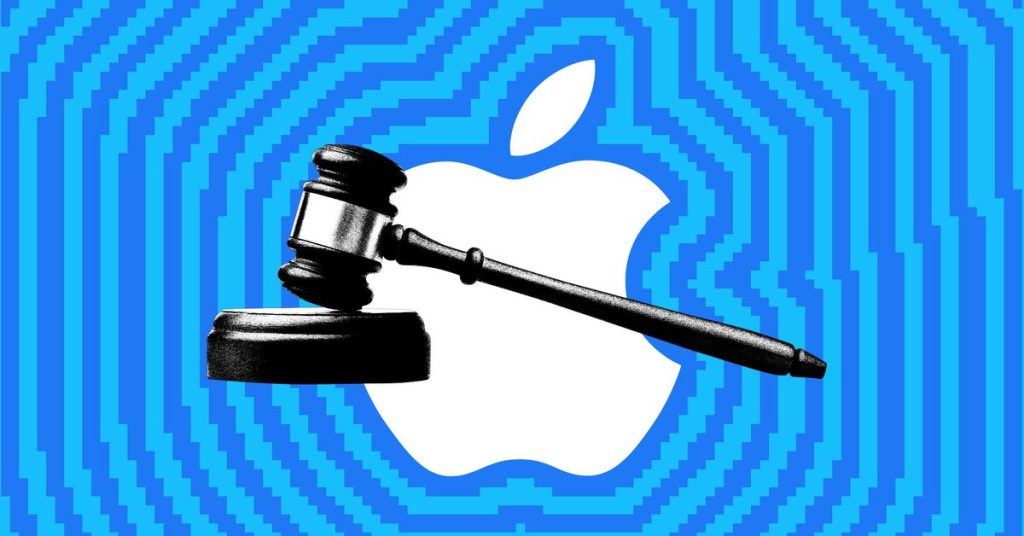DOJ and States Accuse Apple of Illegal Smartphone Monopoly in New Antitrust Lawsuit
Apple Allegedly Drives Up Prices and Limits Competition
The US Department of Justice, along with 16 state and district attorneys general, has filed a new antitrust lawsuit against Apple, alleging that the company operates an illegal monopoly in the smartphone market. The lawsuit accuses Apple of increasing prices for both consumers and developers while simultaneously making users more dependent on its iPhones. According to the DOJ, Apple selectively imposes contractual restrictions on developers and withholds critical access points to the phone.
“Apple exercises its monopoly power to extract more money from consumers, developers, content creators, artists, publishers, small businesses, and merchants, among others,” the DOJ wrote in a press release.
Five Ways Apple Allegedly Maintains Its Monopoly
The government highlights several ways in which Apple has allegedly maintained its illegal monopoly:
- Hindering “super apps” that include multiple programs and could reduce “iOS stickiness,” making it easier for iPhone users to switch to competing devices
- Restricting cloud-streaming apps, such as those for video games, which would decrease the need for superior hardware
- Limiting the quality of messaging between the iPhone platform and competing mobile platforms like Android
- Restricting the functionality of third-party smartwatches with iPhones and making it more difficult for Apple Watch users to switch from the iPhone due to compatibility issues
- Preventing third-party developers from creating competing digital wallets with tap-to-pay functionality for the iPhone
Apple’s Response to Competitive Threats
“For years, Apple responded to competitive threats by imposing a series of ‘Whac-A-Mole’ contractual rules and restrictions that have allowed Apple to extract higher prices from consumers, impose higher fees on developers and creators, and to throttle competitive alternatives from rival technologies,” DOJ antitrust division chief Jonathan Kanter said in a statement.
The case has been filed in the US District Court for the District of New Jersey.
Apple’s Statement and the Potential Impact of the Lawsuit
In response to the lawsuit, Apple spokesperson Fred Sainz stated that the lawsuit threatens the company’s core principles and could hinder its ability to create the technology people expect from Apple. He also warned that it could set a dangerous precedent, allowing the government to heavily influence the design of people’s technology. Apple believes the lawsuit is wrong on both the facts and the law and plans to vigorously defend against it.
DOJ’s Recent Antitrust Actions and the Global Landscape
This lawsuit marks the second tech giant the DOJ has targeted in recent years, following two separate antitrust suits against Google. It signifies a shift in the DOJ’s approach to tech monopolization cases since the landmark Microsoft lawsuit at the turn of the century. The case has been in the works since June 2019, when reports first emerged that the DOJ would investigate Apple’s practices in the iOS app distribution market.
While the US has been slower to act, Europe has taken significant steps to curb the power of large tech platforms. The European Union has instituted the Digital Markets Act to regulate the gatekeepers of large platforms, several of which are operated by Apple. In a recent case, the European Commission fined Apple €1.84 billion (approximately $2 billion) in connection with a complaint from Spotify regarding its restrictive app store practices.
As the DOJ continues its antitrust efforts against tech giants, it will have a busy schedule in the coming years. The agency is set to wrap up closing arguments in its search distribution case against Google in May and will begin a trial in a case over Google’s advertising technology in the fall.

1 Comment
Looks like Apple’s in hot water again, monopoly claims are no small deal!